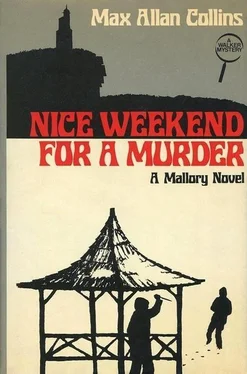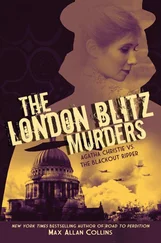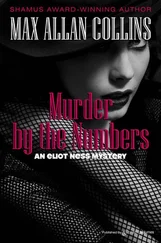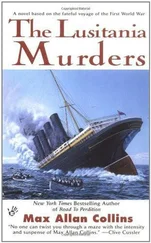“Hit a little too close to home, did you?”
He mock-grimaced for just a moment. “Guess so. Anyway, that prank that got pulled on you last night, when the word got around, gave everybody a laugh.”
“I noticed.”
He put a hand on my shoulder, pretended to be somber. “You’re not angry with me?”
“For making me the laughingstock of Mohonk? I’m livid. I’ll never speak to you again.”
He shrugged, mugged. “Just so we cleared that up,” he said, and moved on to mingle with other members of his cast.
Jill, who’d been at my side listening to all this, said, “You sure cut that guy a lot of slack.”
“He’s done me plenty of favors. Remember my mentioning that one of my teachers at a writers’ conference helped me get an agent?”
“Sure.”
“Well, Curt was that writer. I’d written him fan letters for years, and my early short stories were all brazen imitations of his work. He felt flattered, rather than plagiarized, and gave me a lot of help.”
“So he’s a mentor. Like Roscoe Kane.”
I lifted a lecturing finger. “There’s a difference... Kane’s dead. Curt’s alive.”
“One of your few surviving heroes, then.”
“Yup. So I’ll cut him some slack any ole time.”
Nearby, Tom Sardini was chatting with Mary Wright; both of them were in costume — Tom in his trenchcoat and fedora, Mary in a slinky shiny red low-cut gown that showed her figure off to good advantage.
“The Quakers wouldn’t approve,” I said, nodding toward her impressive decolletage.
“To hell with the Quakers,” Mary said, toasting us with her plastic glass of ginger ale, slipping her arm around my shoulder mock-drunkenly and as if we were (ahem) bosom buddies.
Jill pinched me; the plaid suit was so heavy I barely felt it, though I got the point.
Jill said to her, coldly, “I didn’t know you were an author.”
“I’m not,” Mary said, her arm still around my shoulder, as she paid Jill’s manner no noticeable heed. “But a few of the roles had to be filled by Mohonk staff members.”
I smiled and slipped out from Mary’s arm as gracefully as possible and got Jill and myself some more ginger ale. We were standing sipping it when Cynthia Crystal slid over and put her arm around me; she seemed seductive despite her costume and makeup: she had transformed herself into a grandmother type, hair in a gray bun, wearing granny glasses and a blue calico Mother Hubbard.
“What big eyes you have, Granny,” I said.
“Was I rude this morning?” she said.
“A little.”
“Did it surprise you?”
“Not in the least.”
She let loose her brittle laugh. “You really have me pegged, don’t you, Mal?”
“I think so,” I said with a lecherous grin. “But I love you anyway, Cynthia.”
Jill pinched me again; this time she found her way under my coat to my pink shirt, under which was my pink flesh.
“Ow,” I said.
“What?” Cynthia said.
“Nothing. Where’s your Mr. Culver?”
She nodded over toward the fireplace. “Talking with his brother.”
So he was. Culver was dressed all in black; what separated him from Johnny Cash were gloves, a beret, and a domino mask. Between the brothers, making a strange backdrop, was an oil painting in a fancy frame, leaned up above the fireplace, on the mantle — a striking abstract work in which shades of orange and yellow and red swirled in an off-center spiral, a whirlpool of color.
“What happened to their famous family feud?” I said.
“Fizzled, finally,” Cynthia alliterated. She adjusted her granny wig. “It was mostly jealousy, you know.”
Curt had had great success in Hollywood with his comedy caper novels, five of which had been made into movies and God only knew how many more of which had been optioned. But the critics had always been tough on Curt — unfairly, I thought — often referring to him as “a road company Donald E. Westlake.” On the other hand, Tim Culver had earned kudos from even the toughest critics for his series about professional thief McClain; the acclaim included multiple Edgars and overseas awards. But in over a twenty-year career, he had never had any success in Hollywood — never generated a dime of option money (I knew the feeling).
“Tim envied Curt’s financial success,” Cynthia said, with a shrugging smile, “and Curt envied Tim’s critical success.”
“What turned that around?” Jill asked Cynthia. “They seem to be getting along now.”
And they did. They were chatting, even smiling a little. Not warm; cool as the unlit fireplace, actually. But not feuding. One having invited the other, and the other having accepted.
“Tim sold McClain to the movies,” Cynthia explained. “Lawrence Kasdan took an option on the whole series, and the first of them, McClain’s Score , is in preproduction now.”
“Lawrence Kasdan,” Jill said. “ Body Heat ! Wow!”
“Movie buff,” I explained to Cynthia. “Ignore her. She won’t take me seriously until I sell to the movies.”
“You did sell to the movies,” Cynthia said.
“TV doesn’t count,” Jill said.
“Especially at Mohonk,” I added. “But as for the brotherly feud — am I right to assume that the glowing reviews Kirk Rath lavished on Curt helped smooth things over between him and Tim?”
“It certainly did,” Cynthia confirmed. “Rath may not be liked — scratch the ‘may’ — but he is influential. Other reviewers pay attention to him and the Chronicler ; a lot of critics have been reassessing Curt’s work since Kirk started championing him.”
“So he and Tim,” I said, “have no reason to be jealous of each other anymore.”
“Happy ending, darling,” Cynthia said, with her best cocktail party smile.
Jack Flint lumbered over, like a small tank; he was dressed as I’d seen him this morning — seemed not to be in costume. On closer look, he had extra gold chains around his neck; otherwise, business as usual.
He answered my unasked question with a shrug, saying, “The character I’m playing is so close to me, I didn’t bother with dressing up. My wife, on the other hand, is not cast to type.”
I looked around for her, and finally spotted Janis, sitting in a chair to one side; frankly, I felt she had been typecast: the outside of her had just been made to match her shy, quiet, inner nature; her cheery, bright California dresses had been replaced with a drab brown one. Her hair was pulled back and she wore no makeup.
I went over to her. “Nervous?”
Her smile was just a slight pulling back of the upper lip over tiny teeth. “Terrified.”
“Don’t be. The game is the thing, here. Our performances don’t need to be Oscar level. Besides, aren’t you a teacher? You should be used to being in front of people.”
“I got out of teaching,” she said. “It made me nervous, too.”
“You’re still in education, though.”
“Yes. I’m assistant principal, primary level.” She smiled again. “Peter Principle, I suppose. I wasn’t much of a teacher so I got kicked upstairs.”
“I’m sure you do a fine job. And I’m sure you’ll do fine today, too.”
“You’re a nice man, Mr. Mallory.”
“Call me Mal. And today I’m not a man, in case you haven’t noticed.”
“You seem to be more a mouse.”
“I do at that.”
She smiled more broadly now. “They really gave you a ribbing about that prank last night.”
“They sure did.”
“I wish it were true.”
“What?”
“What you saw last night. That, or this mystery we’re acting out.”
“In what sense?”
She talked through her tiny teeth. “In the sense that that awful little bastard Kirk Rath would really be dead.”
Читать дальше












